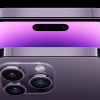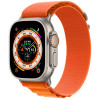CTIA Turns to the Constitution to Fight SF's SAR Law
Apr 2, 2011, 8:03 AM by Eric M. Zeman
The CTIA Wireless trade group continues to fight San Francisco's proposed "right-to-know" ordinance, which would require phone retailers to place the specific absorption rate (SAR) score next to each handset they sell. The SAR indicates how much radiation is absorbed by the body when using a cellular telephone. When the ordinance was first proposed, the CTIA said it would sew confusion among the public, and create false impressions over the supposed safety value of mobile phones based on their SAR number. Now, the CTIA says the law would break the first amendment rights of the retailers. CTIA spokesman John Walls said, "You can't compel speech. Telling retailers to give out that information violates the First Amendment." The CTIA has sued San Francisco, though the lawsuit is on hold, and went so far as to move its annual fall trade show from San Francisco to San Diego, instead. The legislation is set to take effect June 15.
Comments
Any radiation emitting device should be labeled as such.
Ask doctors why they opt for the pat down instead of the body scanners at airports.
teh.Cheeto said:
what is it inside the phones that creates the radiation?
Is this a serious question?
Modulation of electromagnetic radiation is the central operating principle of wireless communications.
AJ
Outrageous, but interesting
Nutritional information on food
Warning labels on cigarettes
Drug monographs included when you get a prescription filled
Health ratings posted in restaurants
Ingredients in foods
Fuel efficiency ratings of vehicles
Odds are, this lawsuit will be laughed out of court, but if it isn't, it could be huge.
Wow.
(continues)
(continues)
(continues)
The relevance of aspirin in a tablet is established as fact. It matters how much aspirin is in a tablet for both effect and safety.
The SAR has no established ...
(continues)
(continues)
Crazy


 iPhone 14 Plus Offers a Big Screen For Less
iPhone 14 Plus Offers a Big Screen For Less
 Apple Watch Goes Ultra
Apple Watch Goes Ultra
 Qualcomm Reveals Most Powerful 7-Series Snapdragon Yet
Qualcomm Reveals Most Powerful 7-Series Snapdragon Yet
 iOS 17 Brings Comprehensive Protection Against Unwanted Nude Images
iOS 17 Brings Comprehensive Protection Against Unwanted Nude Images
 Google's New Fitbit Blurs the Line Between Tracker and Smartwatch
Google's New Fitbit Blurs the Line Between Tracker and Smartwatch


